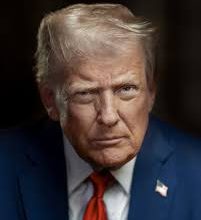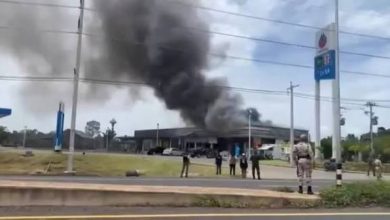Ghana considers renaming Kotoka International Airport

For decades, Ghana’s main international airport has carried the name of Lieutenant-General Emmanuel Kwasi Kotoka, the military officer who played a leading role in the 1966 coup that overthrew President Kwame Nkrumah’s democratically elected government. However, the name has remained a subject of controversy, with growing calls for change. The debate reignited early this year as opposition politicians, historians, activists, and civil society groups pushed for the airport to be renamed in honour of Nkrumah or another more unifying national figure. As the Supreme Court prepares to hear a case on the matter, Ghana finds itself at a crossroads—should the airport continue to bear the name of a coup leader, or should it reflect the country’s democratic values?
A legacy of controversy
Emmanuel Kotoka, a distinguished military officer from the Volta Region, rose to prominence during Ghana’s early years of independence. A key figure in Ghana’s involvement in UN peacekeeping missions, he later became one of the central figures in the National Liberation Council (NLC), the junta that overthrew Nkrumah’s government on February 24, 1966. While the coup was initially welcomed by some who opposed Nkrumah’s increasingly authoritarian policies, it ultimately set a precedent for further military interventions in Ghanaian politics.
Kotoka was assassinated at Accra’s airport in 1967 during an attempted counter-coup. Two years later, in 1969, the ruling military government named the airport in his honour, cementing his place in the nation’s history. But over the years, as Ghana transitioned back to democracy, many have questioned whether it is appropriate for the country’s most important gateway to the world to bear the name of a man whose actions disrupted its democratic evolution.

The case for renaming
Advocates for renaming Kotoka International Airport argue that retaining the name glorifies an anti-democratic act and contradicts Ghana’s constitutional values. Leading voices such as ruling National Democratic Congress (NDC) Chairman Johnson Asiedu Nketia have argued that the airport should instead be named after Kwame Nkrumah, Ghana’s first president, who played a crucial role in securing the country’s independence. ‘Kotoka did a coup and named the airport after himself, even though Nkrumah did all the work to build it,’ Nketia stated.
Civil society organisations, including Democracy Hub, along with Nkrumah’s Convention People’s Party (CPP), have taken their demands further by filing a lawsuit at the Supreme Court. They contend that honouring Kotoka at a national monument is inconsistent with Ghana’s democratic principles and that the name change is long overdue. ‘For 59 years, Ghana has lived with the contradiction of denouncing coups while continuing to honour one of the architects of the first military overthrow of an elected government,’ their legal filing states.
Prominent cultural figures such as talk show host Kwaku Sintim-Misa (KSM) have also weighed in, calling it an embarrassment that Ghana’s international airport is named after a coup leader. ‘It’s a disgrace that the name Kotoka is on our airport. This is a man who disrupted Ghana’s progress and took money from the CIA to overthrow Nkrumah,’ KSM said. Many believe that renaming the airport would send a strong message against unconstitutional governance, especially given the recent surge in military coups across West Africa.

Beyond its symbolic significance, supporters argue that changing the name would better reflect Ghana’s national identity. Many nations have re-evaluated their monuments and place names over time, ensuring that they align with contemporary values. In that spirit, some suggest that renaming the airport would be a step towards acknowledging and correcting the injustices of Ghana’s past.
Arguments for keeping the name
Not everyone agrees that renaming Kotoka International Airport is necessary. Some historians and legal scholars caution against revising history for political convenience, arguing that Kotoka’s role in Ghanaian history—positive or negative—should not be erased.
Professor Stephen Kwaku Asare has argued that history should be preserved in its entirety, warning that selectively renaming national monuments could set a precedent for further erasures. ‘If we remove Kotoka’s name because he led a coup, should we also remove Nkrumah’s name from institutions because he established a one-party state?’ Asare questioned.
Another concern is the potential for political and ethnic tensions. Kotoka was from the Volta Region, and some worry that removing his name could be perceived as an attempt to diminish the contributions of figures from that part of the country. Furthermore, there is the practical challenge of rebranding a major international facility—an effort that would require significant financial resources. Given Ghana’s economic challenges, critics argue that renaming the airport is not a priority.
Others suggest a middle ground: if the name must change, why should the airport necessarily be named after another political leader? Some have proposed honouring a cultural icon or even restoring its original name, Accra International Airport, to avoid further controversy.
Government and public sentiment
Successive Ghanaian governments have largely avoided taking a stance on the issue. Despite Nkrumah’s enduring legacy, even administrations that have honoured him in other ways have not moved to rename the airport. Political analysts suggest that no government has wanted to wade into what could become a divisive issue.
Public opinion appears mixed. Younger Ghanaians and those committed to democratic ideals tend to favour a change, while older generations who recall Nkrumah’s rule—including its controversial one-party state phase—may not be as enthusiastic. Others feel the debate is a distraction from more pressing economic and social issues.
With the case now before the Supreme Court, Ghana stands on the brink of a historic decision. If the court rules in favour of renaming, it could mark a significant step in redefining national identity. If it rules against, the name will remain, but the conversation about how Ghana remembers its past will likely continue.
A defining moment for Ghana
At its core, the debate over renaming Kotoka International Airport is about more than a name—it is about how Ghana chooses to remember its history and the values it upholds. Whether the airport retains Kotoka’s name or is rebranded, the discussion reflects the nation’s ongoing effort to reconcile its past with its democratic aspirations.
In a country that has worked hard to solidify its place as a beacon of democracy in West Africa, the decision on whether to keep or change the name of its most important airport will serve as a statement about what kind of history Ghana wants to honour—and what it wants to leave behind.
FOR ADVERT AND NEWS PUBLICATION, EMAIL US @ tarakirivoicenewspaper@gmail.com or call or WhatsApp us on 08160439769





